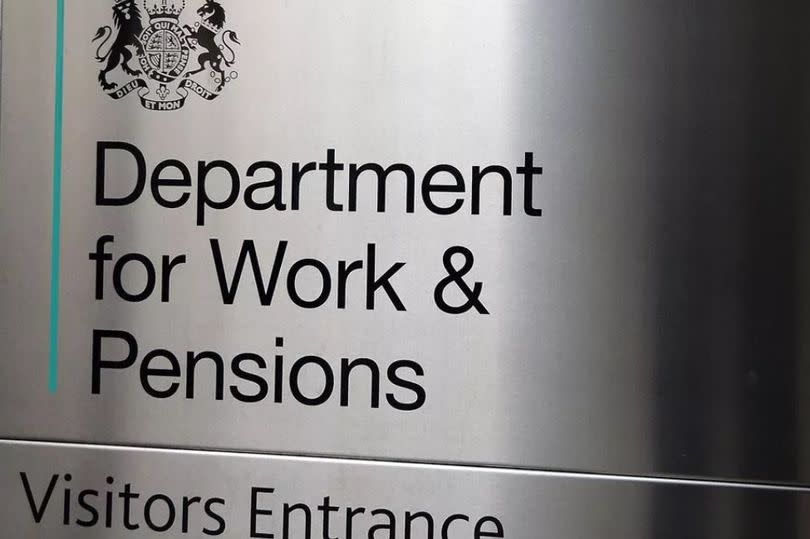DWP review letter for people with Personal Independence Payment award due

The Department for Work and Pensions (DWP) has recently stated that "in most cases", individuals nearing the end of their 10-year Personal Independence Payment (PIP) award this year will not need to attend a face-to-face assessment. This follows the introduction of a new, shorter PIP review form now being sent to those with a 'light-touch' award, typically lasting between five and ten years.
A sample copy of the 'PIP AR2' form has been published by the DWP on GOV. UK as part of the PIP Toolkit, intended for reference use only. However, it provides a useful insight for those with a light-touch award into the questions they will be asked in the six-page document, allowing them to prepare any necessary information in advance, reports the Daily Record.
Ongoing awards are primarily given to those requiring the highest level of support or whose needs are unlikely to change or will only worsen - since 2019, this also includes most individuals who have reached State Pension age.
Sections on the PIP review form
The six-page review form covers:
Identity and contact details
Immigration status
Your main healthcare professional
Details of any changes to your health condition or disability
Details of any changes to your daily living needs
Details of any changes to your mobility needs
Your consent to allow the DWP to collect further information
Questions on the review form
Here are all 16 questions on the PIP AR2 form.
About you
Q1 - Your name
Q2 - Your date of birth
Q3 - Your address
Q4 - Is this a hospital, hospice or other residential or nursing care accommodation?
Q5 - Your correspondence address
Q6 - A phone number DWP can contact you on
Q7 - Have there been any changes to your immigration status? - additional space is provided to write an answer
Q8 - Tell DWP anything they need to know about how they communicate with you - additional space is provided to write an answer
About the main healthcare professional that supports you
The form explains that this may be your GP, hospital consultant or a specialist nurse and asks you to provide their details.
Q9 - What is their name?
Q10 - What is their job?
Q11 - What is their phone number?
Q12 - What is the address where they work?
About your health condition or disability.
The form contains additional sections for claimants to provide further information, particularly for Questions 13, 14, and 15. These sections provide greater space for detailed responses
The form also emphasizes, "PIP is assessed on how your condition affects you, not the condition itself."
Q13 - Have there been any changes in your health condition or disability since DWP last awarded you PIP?
Q14 - Have your daily living needs changed since DWP last made a decision on your PIP?
The form states: “By daily living we mean preparing food and cooking, eating and drinking, managing treatments and taking medication, washing and bathing, managing toilet needs, dressing and undressing, communicating, reading, mixing with other people and managing money.”
Q15 - Have your mobility needs changed since DWP last made a decision on your PIP?
The form states: “By mobility we mean getting around and planning and following a journey.”
Consent for DWP to collect further information
Q16 - Do you give consent for your doctor or other relevant professionals to give DWP more information about your health condition or disability?
Question 16 seeks consent for DWP to gather further health information.
The section clarifies the purpose of information gathering for assessment: "The Department for Work and Pensions (DWP) or approved healthcare professionals that work for DWP, might need more information about your health condition or disability and how it affects you."
"They might ask, with your consent, for relevant information from your doctor, or any other relevant professional you tell them about."
"DWP can lawfully ask your doctor, hospital consultant or other relevant professionals for information about your health condition and how it affects you. This is because we are asking for the information to help us carry out our official social security functions."
The document further states: "You do not have to give your consent. If you do not, DWP will make a decision based on the information they have already, as well as any you give DWP yourself."
At the end of the form is a section for the claimant's signature and date. The AR2 award review form is available to view online.
Regarding the PIP review process, DWP guidelines confirm that claimants will continue to receive PIP while their claim is under review. The form comes with an accompanying letter.
This letter from the DWP will outline:
Confirm that you have a long-term health condition/disability or that you are over State Pension age
Confirm your current awards for daily living and/or mobility
Set out the needs or difficulties that you have been assessed under for daily living and/or mobility for your current award
Explain the reason for the review
Give clear instructions about what you need to do next
Explain what to do if you have problems completing the form
Explain what the DWP will do once they receive the form
It's important to note that all review forms must be returned within a set deadline - typically one month from the date indicated on the letter and the review form. Should you require additional time to complete the form, it's advised to contact the PIP enquiry line at 0800 121 4433 promptly.

 Yahoo News
Yahoo News 
